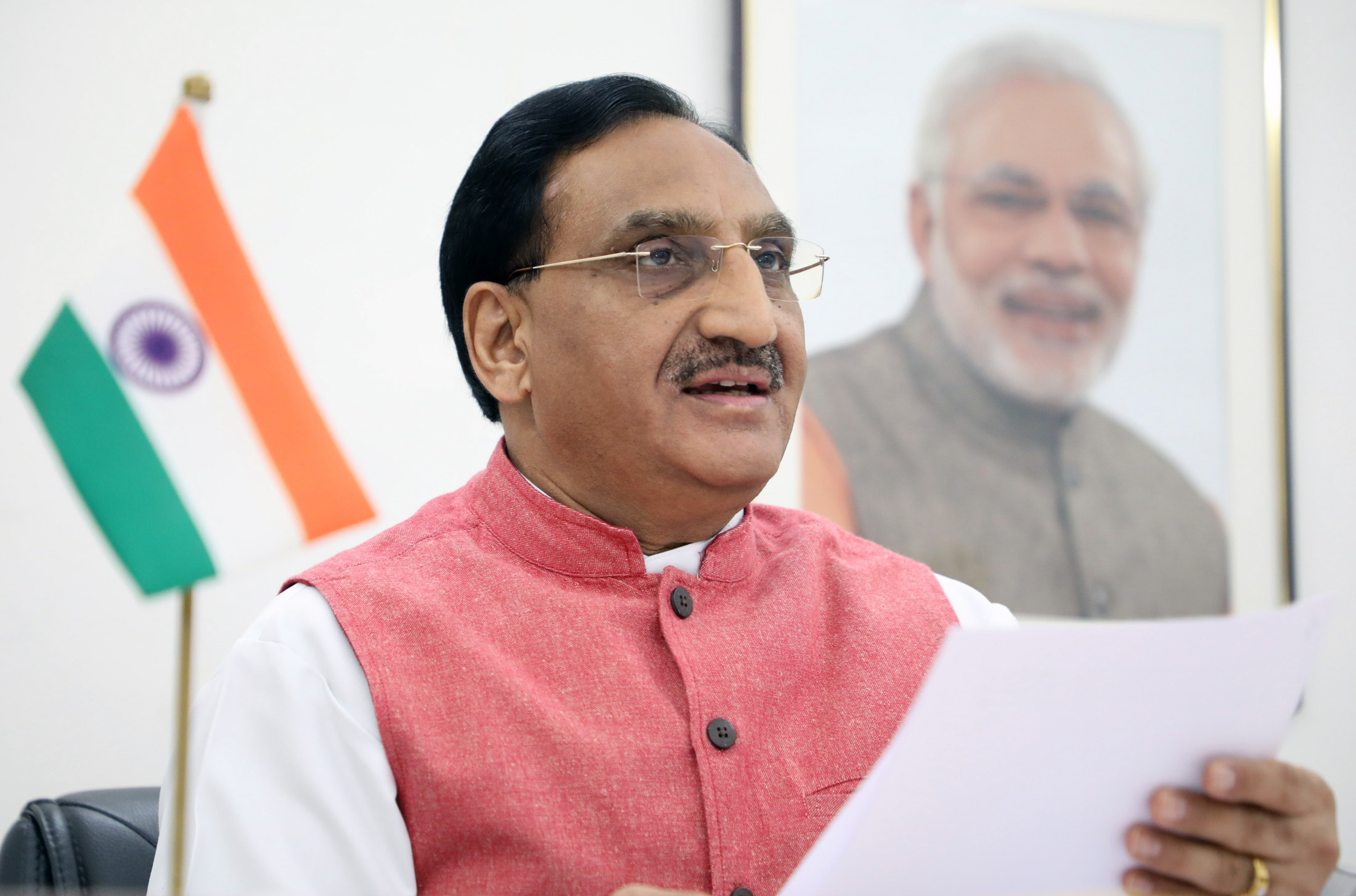Union Education Minister Ramesh Pokhriyal 'Nishank' on Friday said India's new National Education Policy (NEP) is based on concepts of equity, quality and accessibility.
The minister also cited the country's "diverse" nature in terms of regional languages to stress the benefits of having primary education in a child's mother tongue.
Speaking at the inaugural session of Amity University's two-day conference on "Implementation of National Education Policy 2020 for Transforming India", he said there is awareness and excitement regarding the implementation of the NEP not only in the county but also globally.
"The new education policy connects the past with the future and focuses on leading India to the top," Pokhriyal said.
Quoting Swami Vivekananda, he said the country is resolved to achieve its objective in education.
"If you look at the NEP from a wider horizon, the policy is as national as it is international. It is impactful, inclusive and interactive. The new education policy stands firm on the foundations of equity, quality and accessibility," he said.
He said the NEP promotes mother tongue as mode of education because it is considered that no other language can provide expression to a person as much as one's mother tongue.
"Primary education will be in mother tongue and later one may switch to other languages," Pokhriyal added.
Noting that some people had raised doubts over the global appeal of the new policy vis-a-vis use of English, he asked if countries like Japan, Germany, France, and Israel have lagged behind others just because they stuck to their mother tongue.
"These arguments do not make any sense," he said, stressing the importance of education in mother tongue in a "diverse" country like India with several regional languages.
"This is not one man's or one government's education policy, it is the education policy of a country which has provided leadership to the world," Pokhriyal added.
The minister told the audience, including vice chancellors of various universities and UGC officials, that the implementation of the policy is as crucial as the policy itself.
(Only the headline and picture of this report may have been reworked by the Business Standard staff; the rest of the content is auto-generated from a syndicated feed.)
 Dear Reader,
Dear Reader,
Business Standard has always strived hard to provide up-to-date information and commentary on developments that are of interest to you and have wider political and economic implications for the country and the world. Your encouragement and constant feedback on how to improve our offering have only made our resolve and commitment to these ideals stronger. Even during these difficult times arising out of Covid-19, we continue to remain committed to keeping you informed and updated with credible news, authoritative views and incisive commentary on topical issues of relevance.
We, however, have a request.
As we battle the economic impact of the pandemic, we need your support even more, so that we can continue to offer you more quality content. Our subscription model has seen an encouraging response from many of you, who have subscribed to our online content. More subscription to our online content can only help us achieve the goals of offering you even better and more relevant content. We believe in free, fair and credible journalism. Your support through more subscriptions can help us practise the journalism to which we are committed.
Support quality journalism and subscribe to Business Standard.
Digital Editor

RECOMMENDED FOR YOU